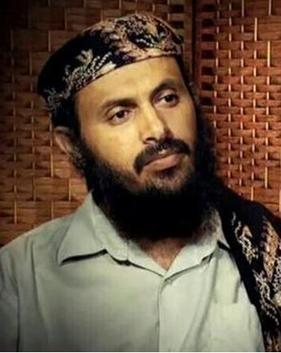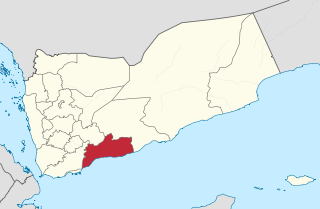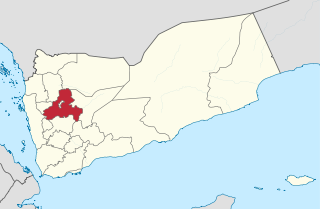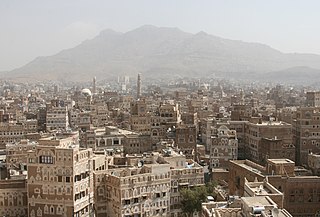In its war on terrorism in Yemen, the US government describes Yemen as "an important partner in the global war on terrorism". There have been attacks on civilian targets and tourists, and there was a cargo-plane bomb plot in 2010. Counter-terrorism operations have been conducted by the Yemeni police, the Yemeni military, and the United States Armed Forces.

Terrorism in Saudi Arabia has mainly been attributed to Islamic extremists. Their targets included foreign civilians—Westerners affiliated with its oil-based economy—as well as Saudi Arabian civilians and security forces. Anti-Western attacks have occurred in Saudi Arabia dating back to 1995. Saudi Arabia itself has been accused of funding terrorism in other countries, including Syria.

The Houthi insurgency, also known as the Houthi rebellion, the Sa'dah War, or the Sa'dah conflict, was a military rebellion pitting Zaidi Shia Houthis against the Yemeni military that began in Northern Yemen and has since escalated into a full-scale civil war. The conflict was sparked in 2004 by the government's attempt to arrest Hussein Badreddin al-Houthi, a Zaidi religious leader of the Houthis and a former parliamentarian on whose head the government had placed a $55,000 bounty.

Al-Qaeda in the Arabian Peninsula, abbreviated as AQAP, also known as Ansar al-Sharia in Yemen, is a Sunni Islamist insurgent extremist group, which is part of the al-Qaeda network and primarily active in Yemen and Saudi Arabia. It is considered the most active of al-Qaeda's branches that emerged after the weakening of central leadership.

In the years after the September 11, 2001 attack on the World Trade Center in New York City, Yemen became a key site for U.S. intelligence gathering and drone attacks on Al-Qaeda. According to the 2012 U.S. Global Leadership Report, 18% of Yemenis approved of U.S. leadership, with 59% disapproving and 23% uncertain. According to a February 2015 report from the Congressional Research Service, U.S. officials considered Al-Qaeda in the Arab Peninsula the Al-Qaeda affiliate "most likely to attempt transnational attacks against the United States."

Qasim Yahya Mahdi al-Raymi was a Yemeni militant who was the emir of al-Qaeda in the Arabian Peninsula (AQAP). Al-Raymi was one of 23 men who escaped in the 3 February 2006 prison-break in Yemen, along with other notable al-Qaeda members. Al-Raymi was connected to a July 2007 suicide bombing that killed eight Spanish tourists. In 2009, the Yemeni government accused him of being responsible for the running of an al-Qaeda training camp in Abyan province. After serving as AQAP's military commander, al-Raymi was promoted to leader after the death of Nasir al-Wuhayshi on 12 June 2015.

The Al-Qaeda insurgency in Yemen is an ongoing armed conflict between the Yemeni government, the United States and their allies, and al-Qaeda-affiliated cells in Yemen. It is a part of the Global War on Terror.
On 21 May 2012, a suicide attack was launched against Yemeni Army soldiers practicing for the annual Unity Day military parade in Sanaa, Yemen. The ceremony is carried out every year on 22 May since 1990 to mark the unification of North Yemen and South Yemen as the Republic of Yemen. Responsibility for the attack was claimed by the Al Qaeda in the Arabian Peninsula (AQAP) affiliate Ansar al-Sharia.

The 2012 Abyan offensive was an offensive by the Yemeni military against Islamist militant forces, possibly including elements of Al-Qaeda in the Arabian Peninsula (AQAP), in the province of Abyan with the purpose of re-capturing the militant-held towns of Zinjibar and Jaʿār.

Jama'at Ansar al-Shari'a, also known as Ansar al-Shari'a, is a Yemen-based umbrella organization which includes units from several militant Islamic groups of al-Qaeda in the Arabian Peninsula (AQAP). In 2011, AQAP created Ansar Al-Sharia as a Yemen-based affiliate focused on waging an insurgency rather than international attacks on the West. In the view of the International Crisis Group, AQAP is "an internally diverse organisation with varying layers of support among the local population" and many AAS members and allies are not committed to AQAP's international agenda.

United States drone strikes in Yemen started after the September 11, 2001 attacks in the United States, when the US military attacked the Islamist militant presence in Yemen, in particular Al-Qaeda in the Arabian Peninsula using drone warfare.

The following lists events that happened in 2015 in Yemen.
"Yemeni crisis (2011–present)" refers to events of the Houthi insurgency in Yemen, the Yemeni revolution, the Al-Qaeda insurgency in Yemen and the South Yemen insurgency.

On 7 January 2015, a car bomb was detonated in front of a police academy in the Yemeni capital Sana'a, killing at least 38 people and injuring more than 60 others. This was the third major attack in the country in less than a month, after the deadliest attack in the country during 2014, as well as the second major bombing in less than a month, after the 2014 Rada' bombings and the 2014 Ibb bombing.

The Battle of Sanaa in 2014 marked the advance of the Houthis into Sanaa, the capital of Yemen, and heralded the beginning of the armed takeover of the government that unfolded over the following months. Fighting began on 9 September 2014, when pro-Houthi protesters under the command of Abdul-Malik al-Houthi marched on the cabinet office and were fired upon by security forces, leaving seven dead. The clashes escalated on 18 September, when 40 were killed in an armed confrontation between the Houthis led by military commander Mohammed Ali al-Houthi and supporters of the Sunni hardliner Islah Party when the Houthis tried to seize Yemen TV, and 19 September, with more than 60 killed in clashes between Houthi fighters and the military and police in northern Sanaa. By 21 September, the Houthis captured the government headquarters, marking the fall of Sanaa.

The 2015 Sana'a mosque bombings were four suicide attacks targeting two mosques on 20 March 2015 in Sana'a, Yemen.

The Yemeni civil war is an ongoing multilateral civil war that began in late 2014 mainly between the Rashad al-Alimi-led Presidential Leadership Council and the Mahdi al-Mashat-led Supreme Political Council, along with their supporters and allies. Both claim to constitute the official government of Yemen.

On 26 March 2015, Saudi Arabia, leading a coalition of nine countries from West Asia and North Africa, launched an intervention in Yemen at the request of Yemeni president Abdrabbuh Mansur Hadi, who had been ousted from the capital, Sanaa, in September 2014 by Houthi insurgents during the Yemeni Civil War. Efforts by the United Nations to facilitate a power sharing arrangement under a new transitional government collapsed, leading to escalating conflict between government forces, Houthi rebels, and other armed groups, which culminated in Hadi fleeing to Saudi Arabia shortly before it began military operations in the country.

The Islamic State – Yemen Province is a branch of the militant Islamist group Islamic State (IS), active in Yemen. IS announced the group's formation on 13 November 2014.
The following is a timeline of the Yemeni civil war, which began in September 2014.












